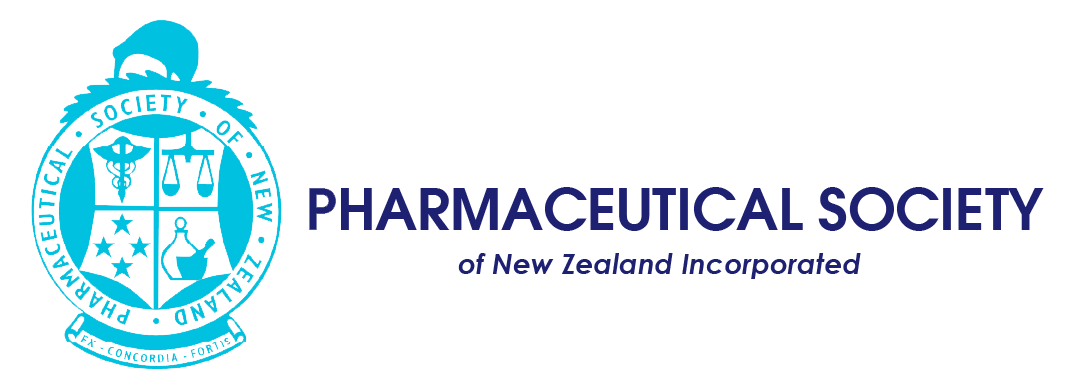About Pharmacy
What is Pharmacy?
Pharmacy revolves around people and medicines, with special emphasis on the manufacture of medicines, their supply, appropriate use and effects. The ultimate concern of pharmacy is to ensure that the patient receives the appropriate medicines and benefits from the proper use of these.
Pharmacy is an essential part of the healthcare system in New Zealand. Over 50 million prescriptions for medicines are dispensed each year in New Zealand. In addition, many medicines for minor ailments are sold over-the-counter.
Pharmacy is an ever-developing profession that offers excellent career prospects. The work is interesting and varied offering the opportunity to join the healthcare team in safeguarding the nation's health. There is the opportunity to meet people from all walks of life and a choice of working environments and geographical locations.
What Careers are available in Pharmacy?
Pharmacists, pharmacy technicians and pharmacy assistants all have specialised roles in pharmacy. Pharmacists require a university degree and practical training whereas pharmacy technicians and assistants can either train on the job and earn whilst gaining their qualifications, or gain a qualification through full time study in a variety of settings.
Community Pharmacy
Situated in the cities, shopping malls and rural towns the community pharmacy is familiar to everyone. There are over 900 pharmacies in New Zealand, which are visited every day by thousands of people to have their prescriptions dispensed or to buy pharmacy-related products. The community pharmacy also provides advice and counselling on the maintenance of good health. Pharmacists, pharmacy technicians and assistants have distinct roles in community pharmacy. Working in community pharmacy would interest anyone who likes the challenges of providing professional service in a retail environment.
Hospital Pharmacy
Hospital pharmacists provide help and advice to hospital patients in all aspects of their medicines. They work collaboratively alongside doctors, nurses and other hospital staff and play a key role in making sure the medication used during a patient’s hospital stay is evidence based, safe and effective. This includes specialist areas like cardiology (heart health), oncology (cancer) or mental health. They give advice such as the best choices of medication, doses to use, how medication works, possible side effects and interactions between medications. They also follow up to make sure any new medication is working well. One of a hospital pharmacist’s most important jobs is to help patients understand their medication and answer any questions they may have about their medication.
General Practice Pharmacists
Some pharmacists work in general practices as a member of the health care team. They work together with patients, doctors, nurses and other health professionals to help ensure medicine use is safe and effective. They may see patients to ensure they have the knowledge and information they need about their medicines and health conditions. They may recommend changes if there is a problem such as unwanted effects, or the need for dose adjustment or a different medicine. They may also be involved when people come home from hospital to help ensure they understand any changes made to their medicines or any follow up needed. Pharmacists in general practice also provide information and advice about medicines to doctors and nurses and may participate in medicines-related quality improvement activities in the practice. Some have areas of specialty such as diabetes or asthma and some may be pharmacist prescribers.
Prescribing Pharmacists
Some specialised pharmacists have also completed extra post-graduate study at university to become Pharmacist prescribers and can prescribe prescription medicines. It takes at least 7-8 years of university study in total to become a Pharmacist Prescriber. Pharmacist Prescribers work alongside doctors and other health professionals, usually in general practice or hospital or other places such as marae clinics and rest homes. Their role is to use their extensive training and knowledge of medicines to work with patients to maximise the benefits from medicines, reduce any harm and to improve access for patients.
Industry
The pharmaceutical industry is responsible for the synthesis and research of new medicines, and the production and marketing of proven medicines to the public. Pharmacists are involved in every step of the process. Opportunities in research and development are limited in New Zealand as most of this is carried out overseas however there are opportunities for pharmacists working in formulation, product information and marketing. Pharmacy technicians are also employed in the marketing of new medicines.
Which Career For You?
Before you decide on a career in pharmacy and whether you want to be a pharmacist, a pharmacy technician or a pharmacy assistant, it is very important that you know something about the work involved. Call in to your local pharmacy and see the pharmacist-in-charge and ask if you can spend some time there. There may even be a part time job available. Ask if you can spend some time in the pharmacy to get an idea of what working in a pharmacy is like.
This experience will help you decide if pharmacy is the career for you and will show the different jobs available.
Download our careers brochures:

